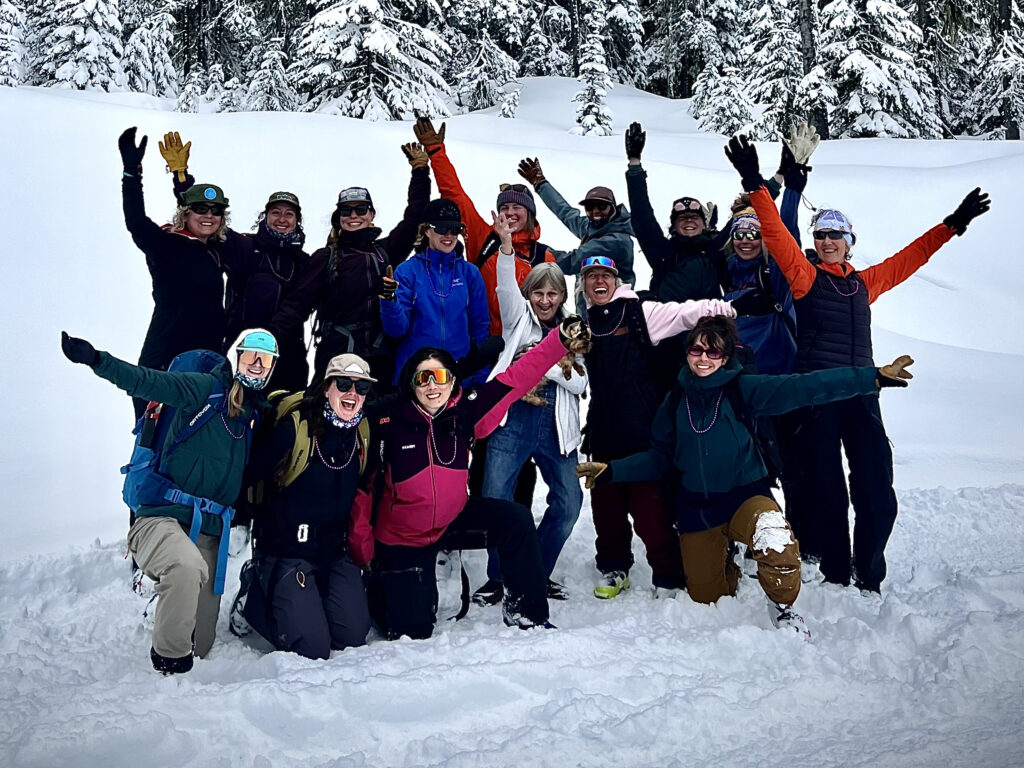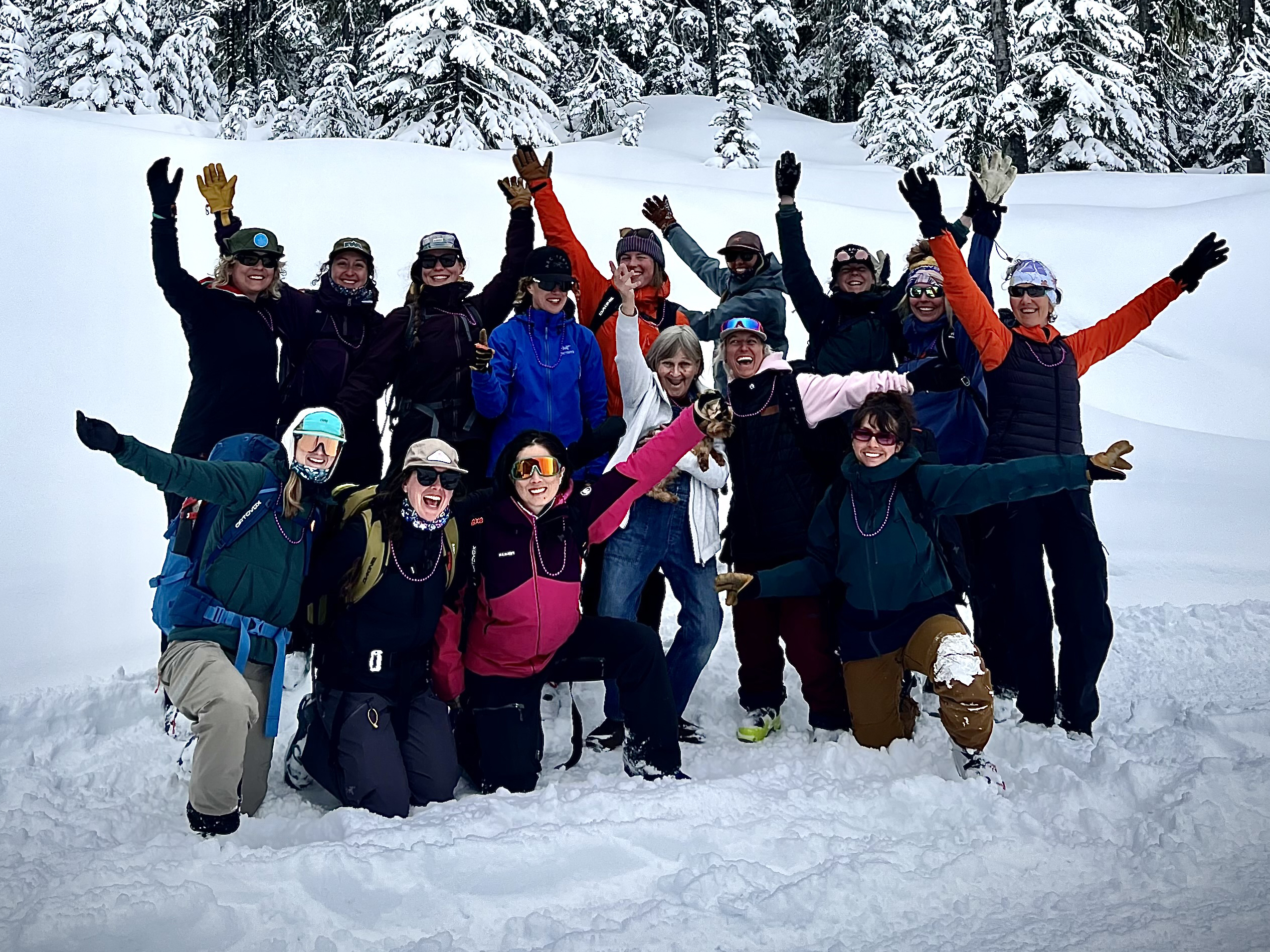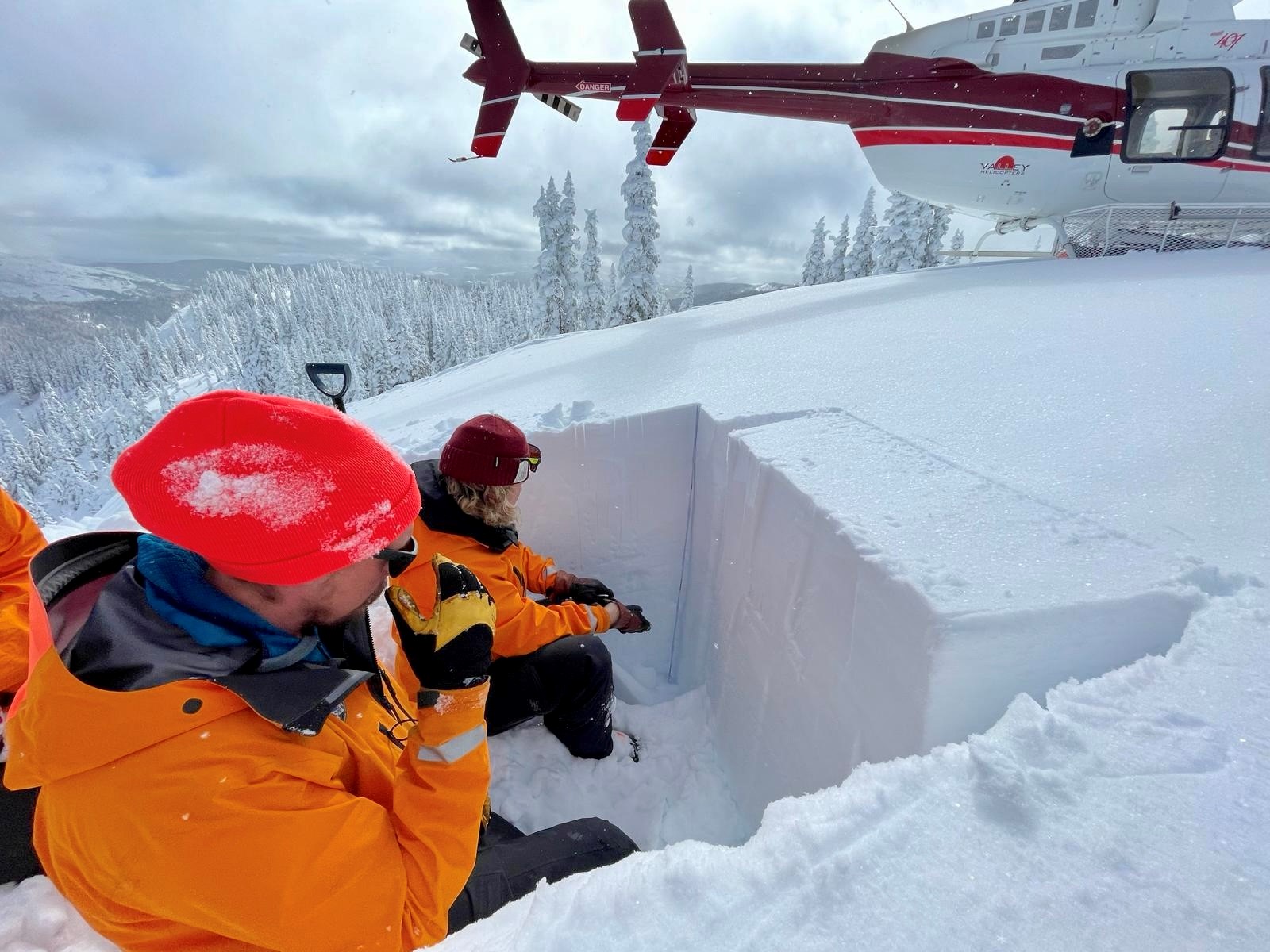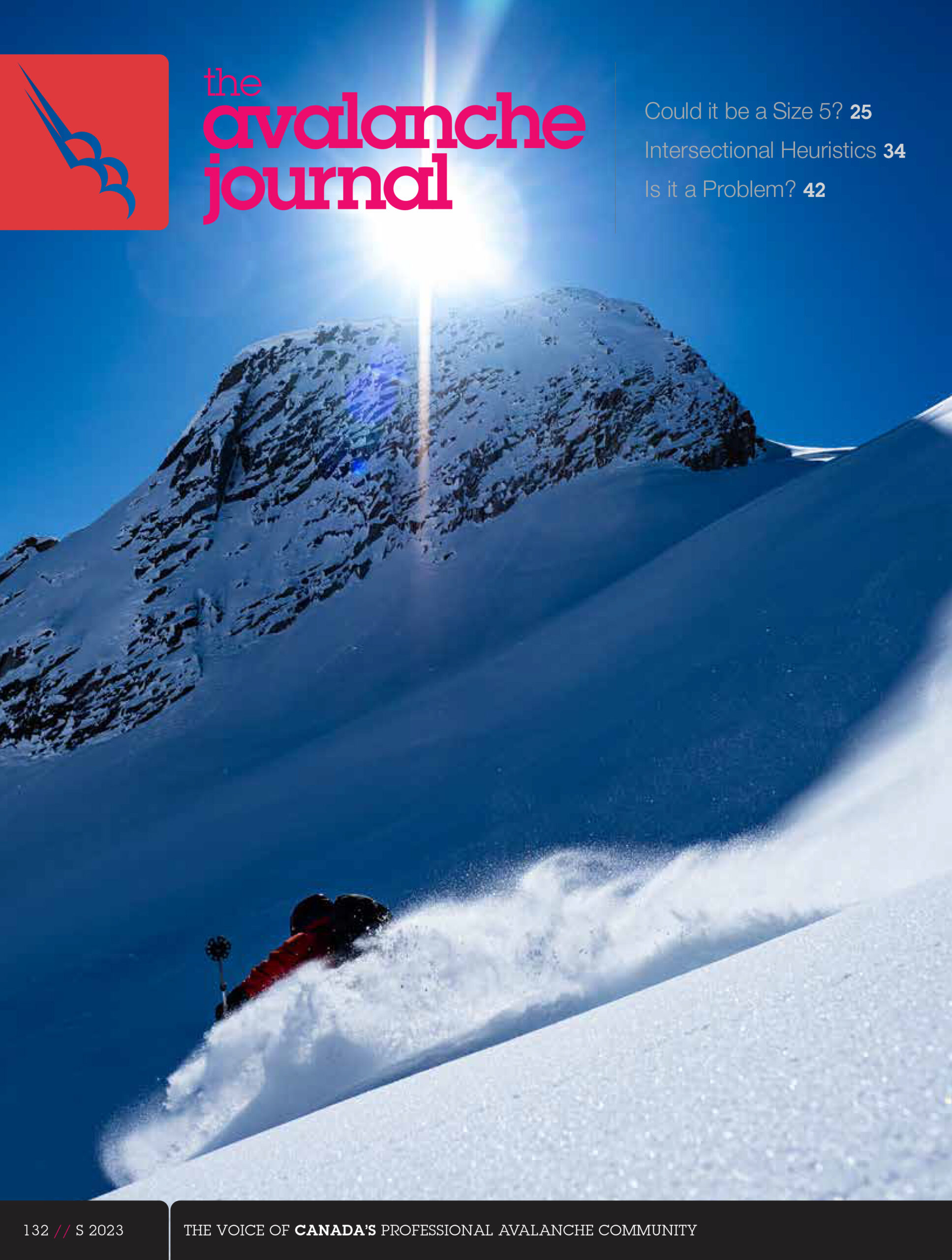By Caroline Poole, Sue Gould and Wren McElroy
TRADITIONALLY DOMINATED BY MEN, the avalanche industry has seen a gradual but significant shift in recent years as women increasingly redefine belonging in the mountains. For women venturing into the avalanche industry, the journey requires more than just mastering technical skills—it’s about breaking stereotypes and forging a path where they’re accepted and celebrated.
Of the many incredible women who lift and inspire others within the CAA, Wren McElroy and Sue Gould played important roles in the 2023-24 season. Wren began her career as a ski patroller in 1993, often finding herself as one of the only women at work in the field. Likewise, Sue began her career in 1993 as an avalanche technician for the Ministry of Transportation as the only woman in the sector. Neither women were then considered the “typical” faces of avalanche safety.
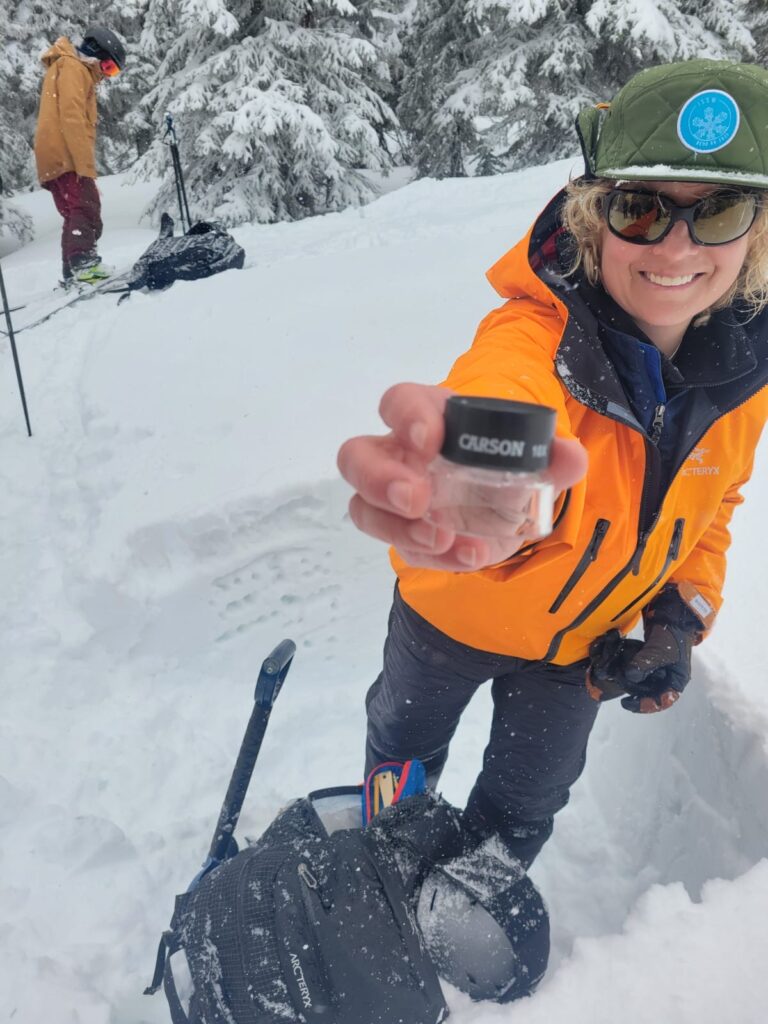
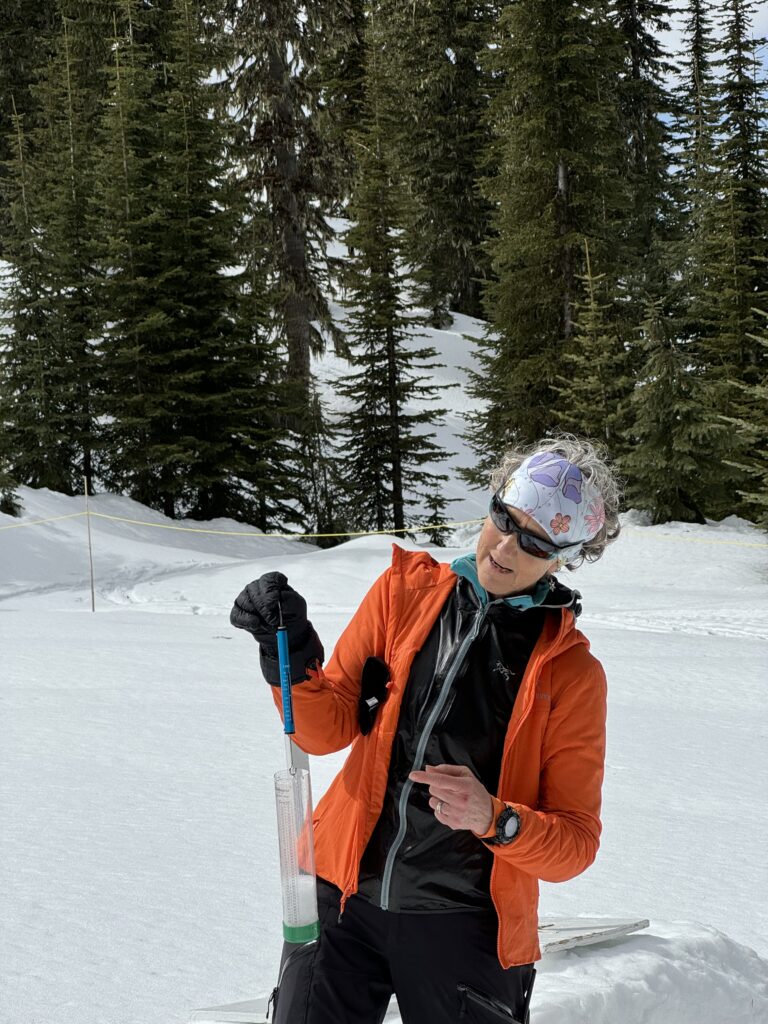
With help from both the Ministry of Transportation and Infrastructure (MoTI) and the CAA Diversity, Equity, and Inclusion (DEI) Committee, this gender imbalance is beginning to change. In April, Sue and Wren were invited to instruct the CAA’s first all-women’s Avalanche Operations Level 1 course at Kootenay Pass in B.C. Twelve women, eager to learn and expand their skill sets, arrived on day one ready to apply themselves. By the end of the week, they had forged strong bonds and had become a cohesive unit.
Despite extremely challenging digging through spring snow conditions, long days of fieldwork and homework, and a few tears, these 12 Level 1 students passed confidently. The “Wrath of Wren” and “Mama Sue,” as the instructors became known, pushed the students to their limits. In return, this all-female cohort approached their learning experience as a collaborative endeavour, using mealtimes as opportunities for collaboration and shared inquiry. This was an adjustment for Sue and Wren, given that many of their early professional experiences involved a more competitive and individualistic “grind-it-out” mindset amongst their male peers. Even Cate Shaw, the chef for courses at Kootenay Pass, commented she had never had such a noisy kitchen as the students collaborated on their coursework and problem-solved together.
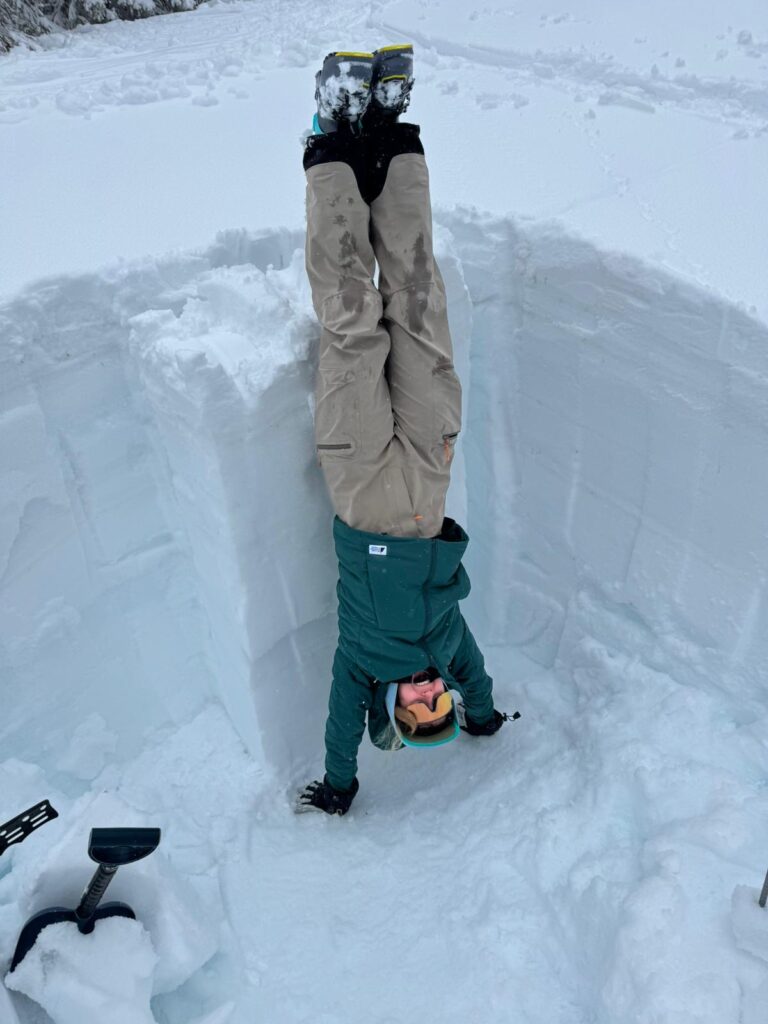
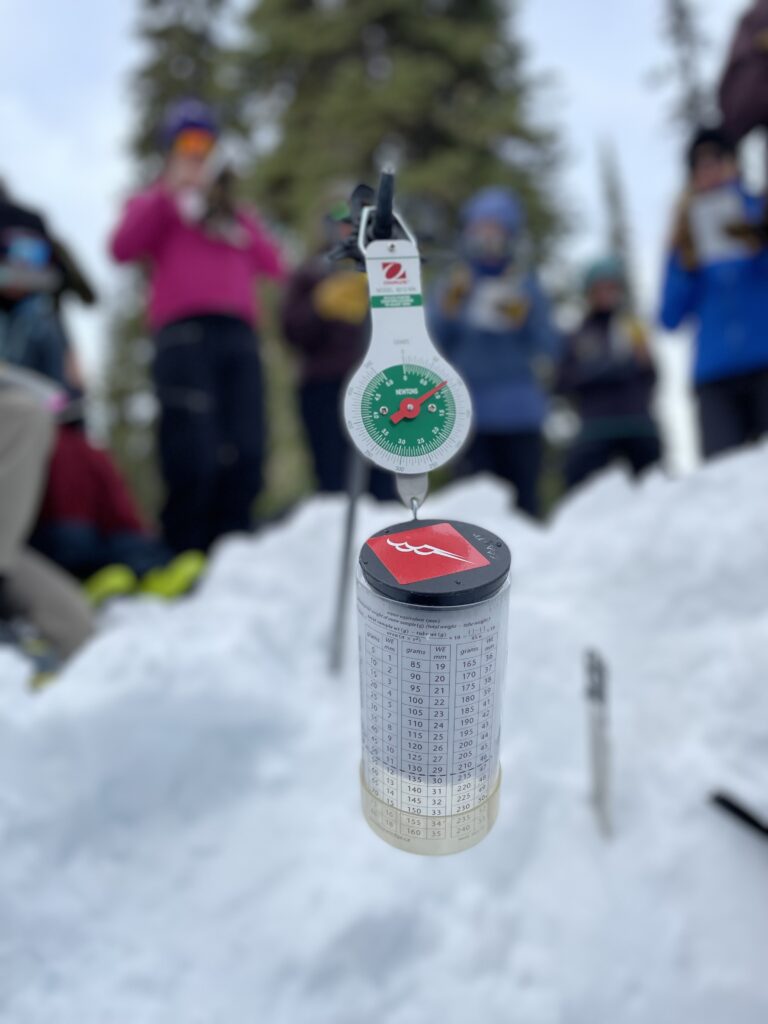
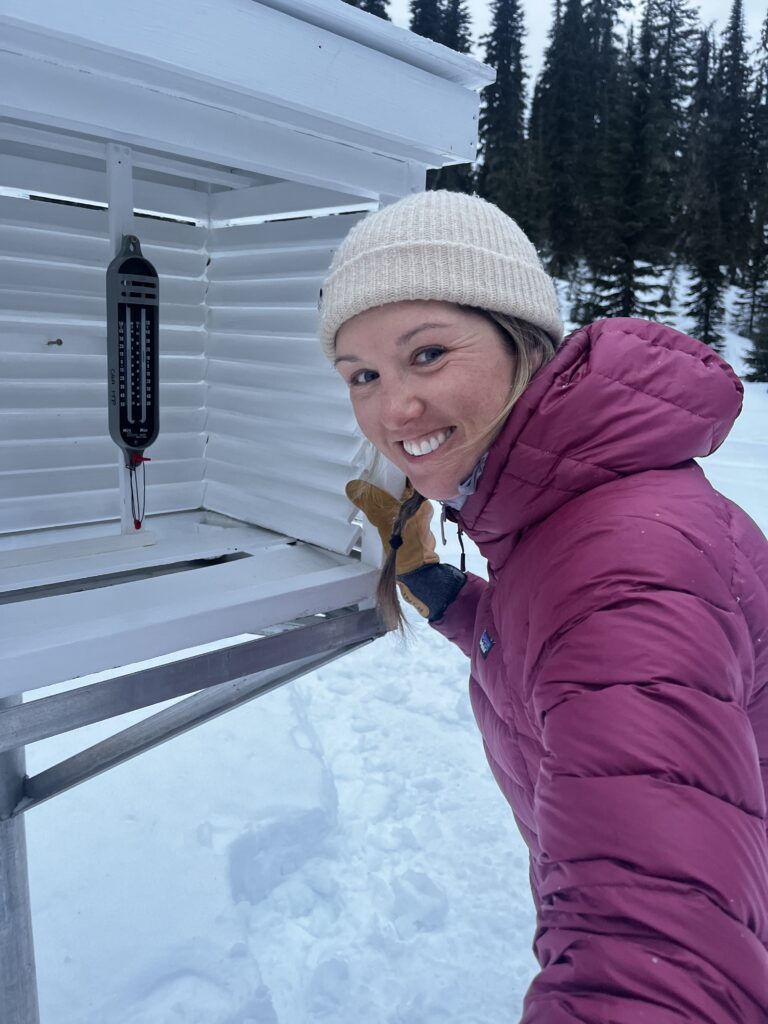
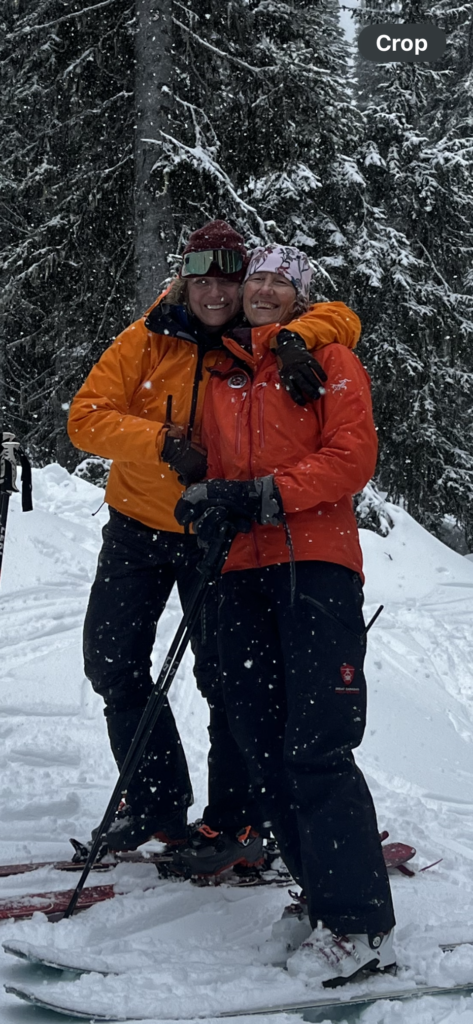
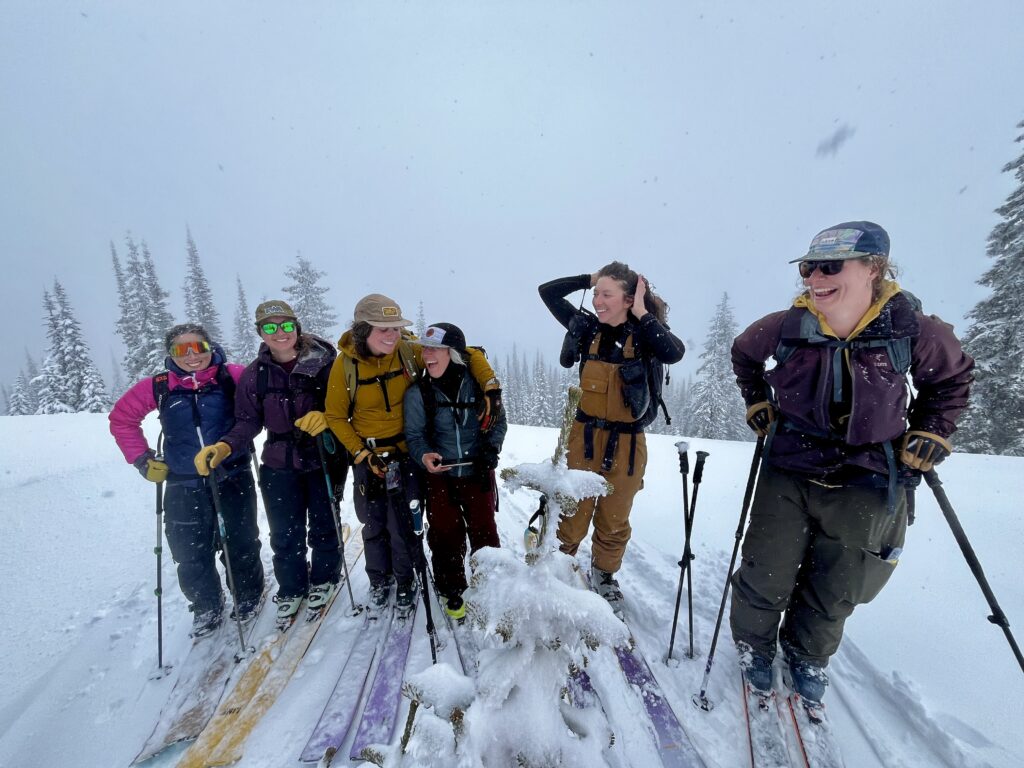
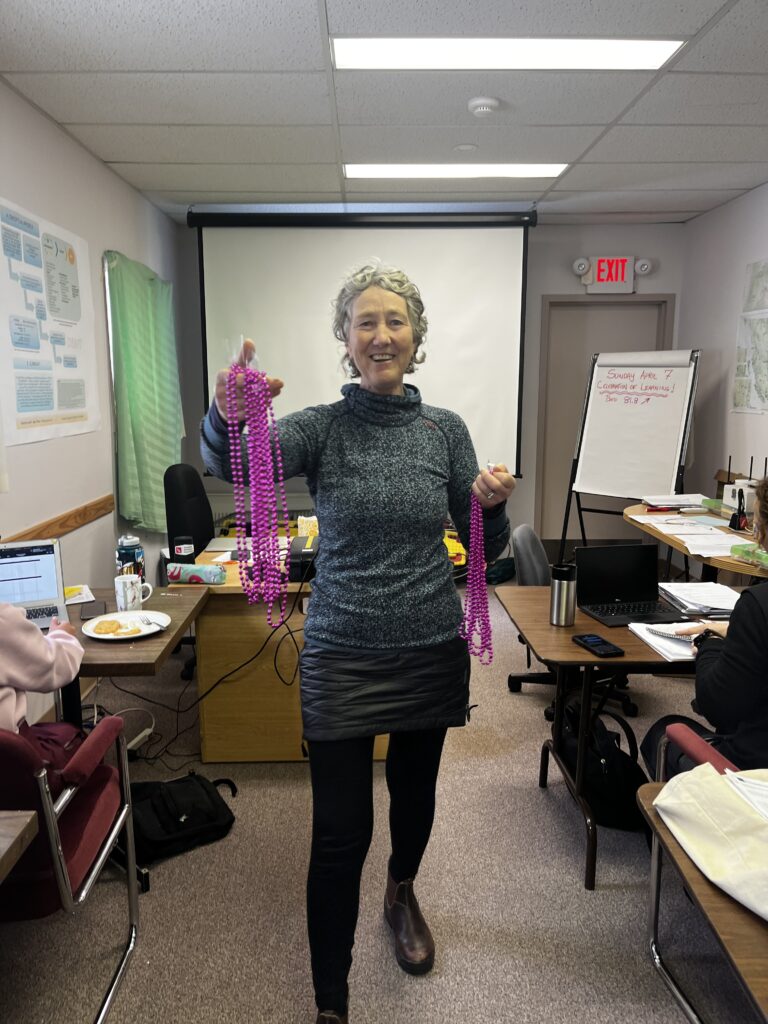
One of the challenges women face in the avalanche industry is representation. Seeing few, if any, women in leadership roles or as instructors can be disheartening for those aspiring to enter the field. For Sue and Wren, this course represented a passing of the torch in training and mentorship. The week started with a group of self-perceived recreationists who, when asked, stated their goal for the week was, “To pass.” They didn’t yet see themselves as future avalanche professionals. By the end of the week, there was much buzz about what jobs they would apply for with their newly minted CAA Level 1 certifications.
Sue and Wren would like to extend their thanks to the MoTI team at Kootenay Pass for being the driving force behind the inception of this course. Thanks also go out to ITP staff and Maris Fraser for making this course a reality. Finally, they also want to celebrate the fantastic women who worked hard and challenged themselves as learners. One member of the MoTI team mentioned that many on the crew have daughters themselves and would like to ensure they may see themselves in the avalanche industry.
Women’s increasing visibility in the industry is a testament to the resilience, determination, and dedication of those who challenge gender norms and defy stereotypes. The CAA hopes to continue this professional empowerment in the avalanche industry with women-specific courses in the ITP seasons to come.
